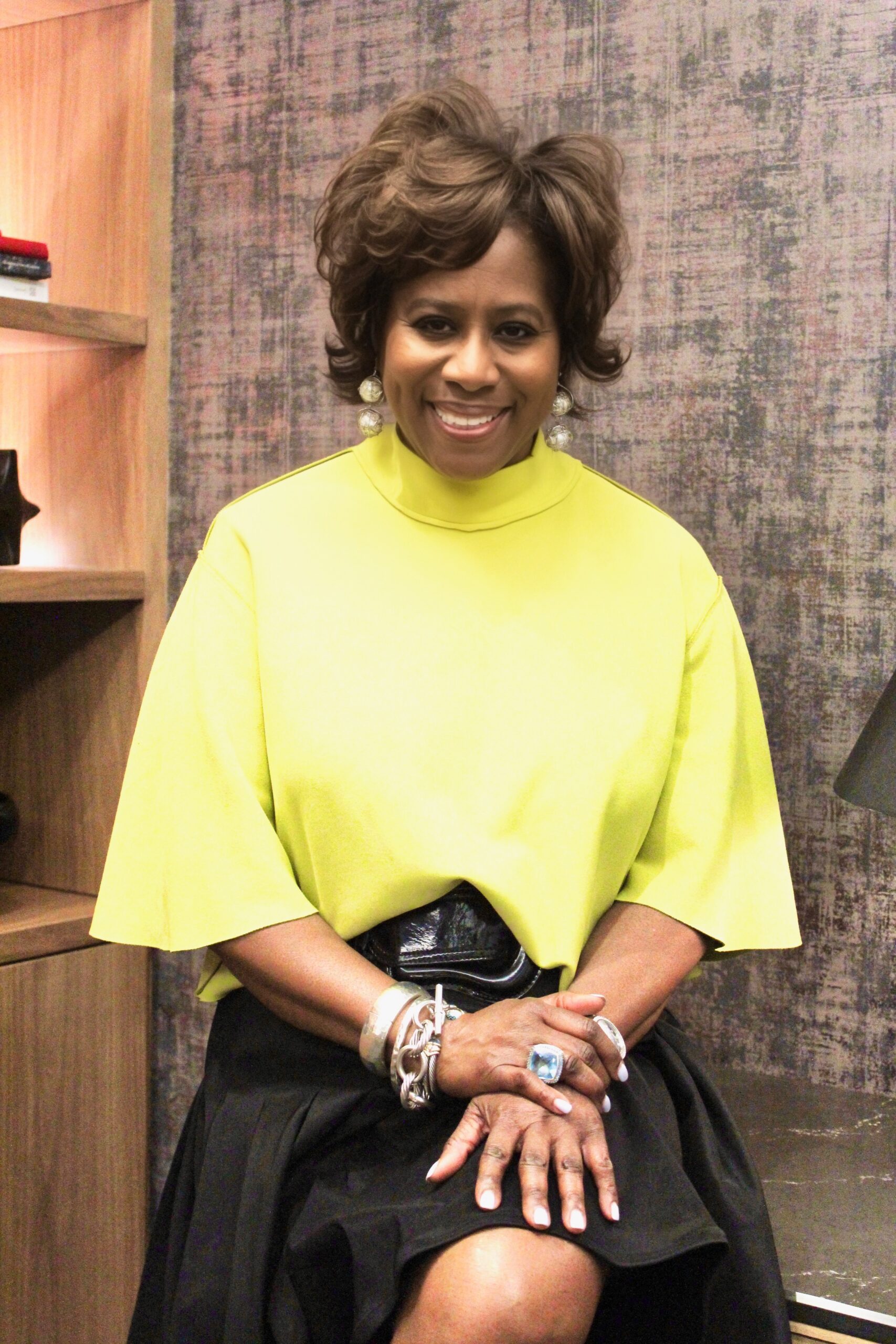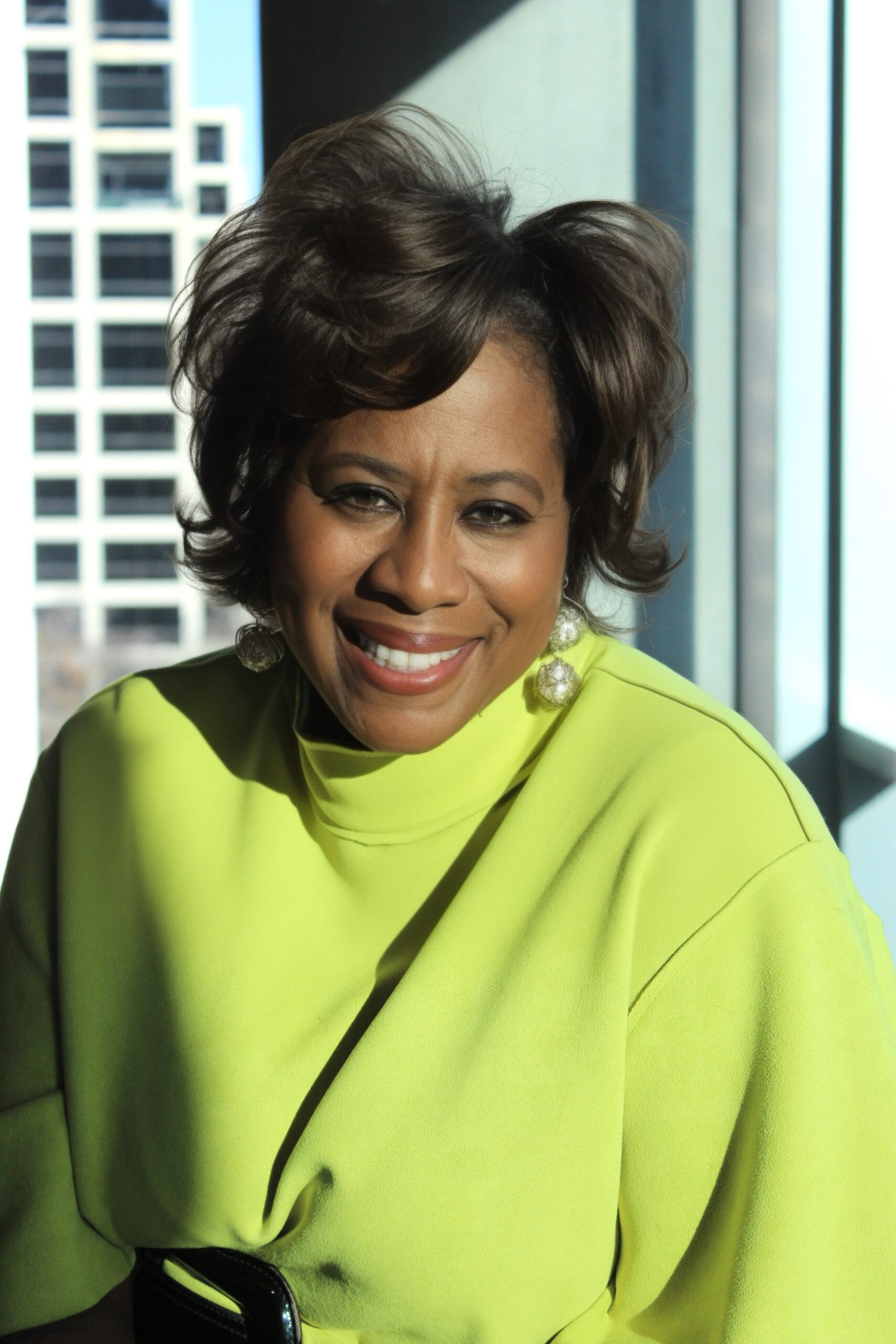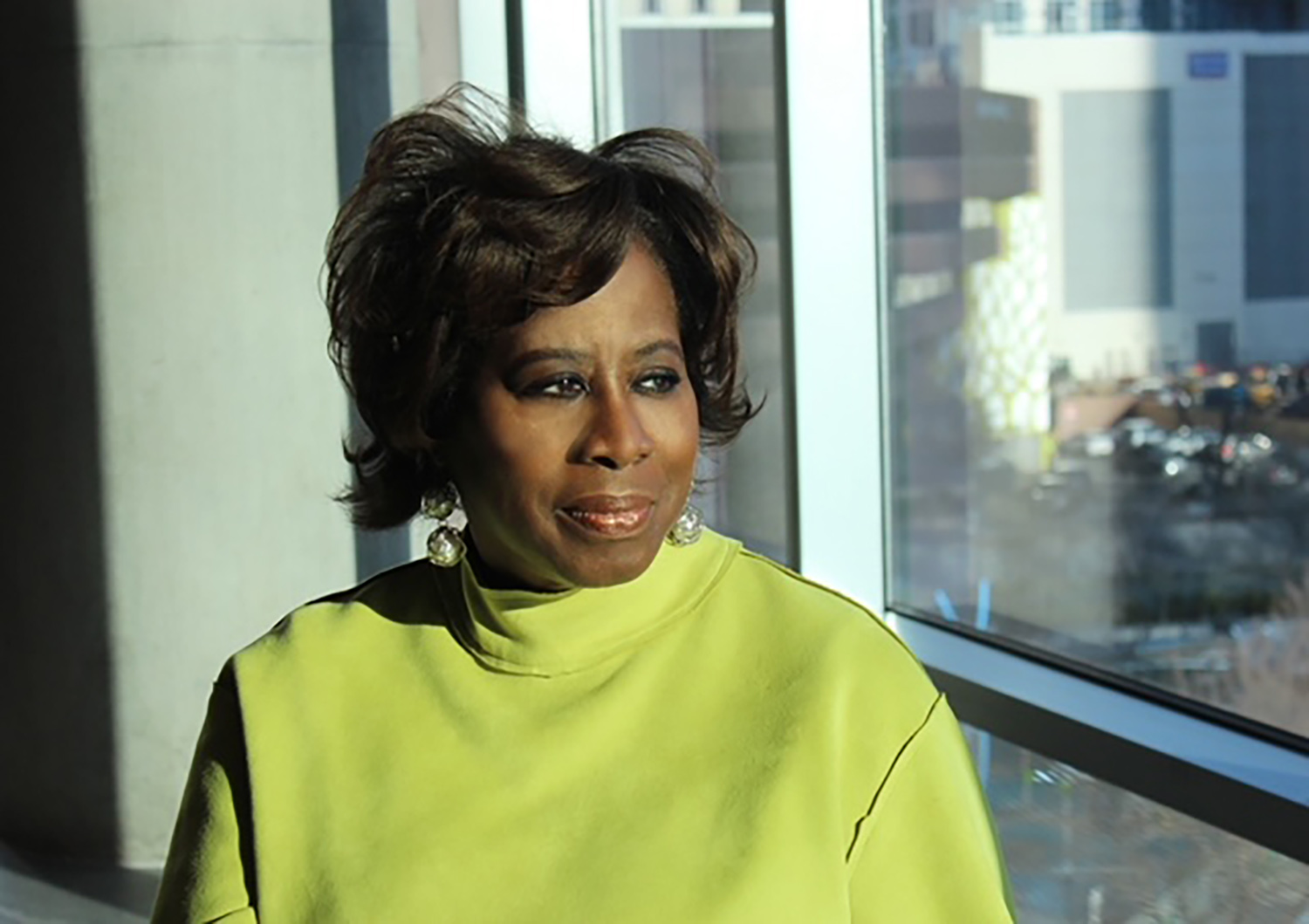Story by Grayson Mask. Photos by Nancy McGuire.
Michelle Thomas’s journey into a fulfilling career in philanthropy was significantly shaped by her upbringing in the Redbird area of Southern Dallas, a community that experienced profound demographic and economic shifts during her formative years.

When Michelle was in the 6th grade, her family was the first African American household on their street in a predominantly white neighborhood. In the 90s, this community, vibrant with retail shops and major anchor stores like Sanger-Harris, Titche’s, and Montgomery Ward’s, began to change as these institutions departed with the shifting demographics.
Michelle’s experiences in the face of these growing changes sparked a deep interest in understanding and addressing the systemic issues facing communities impacted by racial disparities. She became determined to pursue a career that not only had a purpose, but also aimed to tackle the challenges faced by communities historically excluded from Dallas’ economic growth.
Michelle founded her purpose in philanthropy in 2000 as a Director of Community Relations at CitiBank. She left that year to join Bank One (now JPMorgan Chase) as Vice President Relationship Manager- Global Philanthropy, but had advanced in 2023 to the position of Southwest Region Executive-Global Philanthropy.
Her interest in philanthropy emerged from recognizing its potential to significantly contribute to the public good. Michelle understood that effective philanthropy required more than desk work– it made active engagement with the community necessary. She believed in being present in the community to comprehend and address the barriers truly faced by its members. This belief led her to participate in funder’s tables to learn about innovative ideas, attend conferences, and engage directly with individuals impacted by systemic barriers.
“If you are beginning a career in philanthropy, it is also really important to learn about policy and how policies increase economic security and mobility through changes to laws, regulations, and funding flows that may support your grantmaking strategies,” Michelle says.

Networking was another area she focused on, connecting with professionals in the industry to learn success tips, seeking mentors who would become her advocates, and familiarizing herself with philanthropic speak to demonstrate her understanding of the nonprofit universe.
During Michelle’s 25-year tenure as a philanthropic professional, Dallas has undergone significant transformations.
Michelle notes that the challenges communities face have become more acute, characterized by an expanding economic divide, racial injustice, gender inequity, the impacts of climate change, and the digital divide.
According to Michelle, foundations have been compelled to adopt new and expanded approaches to more effectively serve communities. The demands placed on philanthropy have started to outpace the capacity and infrastructure of many foundations, prompting these organizations to evolve their operational practices. This evolution aims to keep pace with current demands and address future challenges more efficiently and sustainably, often necessitating a reassessment of their portfolio and a more intentional approach moving forward. Furthermore, Michelle has observed a notable increase in funding collaboratives and individual actors joining forces to effect change on a broader scale.
Michelle mentions that because of collaborations with entities like JPMorgan Chase & Co. (JPMC), the focus has shifted toward system change investments, signifying a move towards more comprehensive and impactful strategies. The entry points for philanthropic involvement have diversified, with attitudes becoming more humble and inclusive, and strategies more sophisticated, including place-based neighborhood initiatives.
“I am also seeing really promising trends for philanthropy– trust-based philanthropy, more collective giving, more funding towards social justice and climate. Many foundations have shifted towards making fewer, more impactful investments focused on systems changes, and philanthropy is embracing data and technology for greater impact,” Michelle states.

In Dallas, Michelle Thomas has identified several stark disparities in opportunity that underscore the city’s economic and social challenges. According to Michelle, these disparities are evident across various dimensions. First, she says the attainment of a living wage is difficult. Despite Dallas County experiencing significant growth in academic achievement, its economic structure is such that only one in four residents aged 25 to 34 can attain a living wage. There is a pronounced racial gap in this context, with White residents being three times more likely than their Black and Hispanic counterparts to have the access, resources, and support needed to secure employment at a living wage. There are also issues of disinvestment in Southern Dallas and an affordable housing crisis.
“The lack of affordable housing in Dallas has resulted in nearly half of the city’s Black and Latinx renters being rent-burdened. This housing affordability crisis disproportionately affects minority communities, further entrenching economic disparities,” Michelle explains.
In response to these challenges, JPMC actively invests in programs to address the major economic and social disparities in Dallas. When selecting a nonprofit organization for support, Michelle and her team employ a structured evaluation process that revolves around both qualitative and quantitative criteria, ensuring alignment with their philanthropic pillars. These pillars include Jobs and Skills, Small Business Development, Neighborhood Development, and Financial Health. Each of these areas is crucial for building a sustainable and equitable economy that offers opportunities for all members of the community.
The concept paper is the initial point of evaluation, where the organization must address a clear problem statement, including the significance of the problem, data or evidence supporting the scope and scale of the issue, and defining JPMC’s role in addressing the problem. The suitability of the partners to address the problem is also assessed. The organization must articulate clear pathways to impact, detailing the strategies proposed, how these strategies address the problem, what success looks like, progress indicators, and pathways to scale or sustainability, including potential for influencing policy or sector capacity.
Michelle states that this comprehensive approach ensures that any nonprofit organization supported by JPMC not only aligns with its strategic objectives, but also possesses the capacity, operational integrity, and programmatic potential to make a significant and sustainable impact on the community.
One of Michelle Thomas’s proudest moments in grantmaking involves addressing a critical educational and workforce development challenge in Dallas County. There was a large gap between the demand for jobs requiring post-secondary training and the supply of local graduates with the necessary credentials. In 2017, it was reported that over 18,000 students, or 73 percent of those graduating from high school in Dallas County, were not obtaining post-secondary credentials within six years, primarily due to financial barriers. This gap presented a significant challenge for employers seeking critical talent and students striving to obtain living wage jobs.
To tackle this issue, the Dallas County Promise (DCP) was created to connect high school seniors with post-secondary opportunities and equip them with the skills needed for workforce success. In 2018, JPMC committed a $3 million investment to the Commit Partnership in support of DCP. This grant was designed to provide 15,000 low-income students in Dallas with the necessary support and resources to earn post-secondary workforce credentials aligned with regional job opportunities. The DCP model emphasized increasing access to higher education by leveraging underutilized state and federal funding, supporting students in completing the Free Application for Federal Student Aid (FAFSA) to secure federal financial aid (such as PELL grants), and offering “last dollar” funding to cover any remaining tuition costs.
Since its inception, DCP has supported 90,000 high school seniors across its first five cohorts and now offers programs at 67 high schools within 12 metro area school districts. Beyond the metro area, the model has been replicated in 12 regions across Texas, potentially serving 45% of the state and 165,000 high school seniors. Data from DCP contributed to the passage of legislation that secured $1.6 billion in new funds to help districts prepare students for college.
This investment not only yielded significant educational and economic benefits, but also earned recognition in the 2023 Annual Report, highlighting the impact of JPMC’s commitment to community support and economic growth in Dallas.
Furthermore, it led to JPMC winning the Corporate Social Responsibility Award from DCEO Magazine in 2023, a testament to the corporation’s effective and impactful community efforts in the region. This acknowledgment serves as a proud milestone for Michelle and her team, reflecting their dedication to creating opportunities and fostering economic prosperity in Dallas through strategic philanthropic initiatives.
Michelle emphasizes that working in philanthropy is a complex and long-term endeavor, requiring not just financial investment but also a significant amount of patience. Recognizing the intricate nature of this work, she advises that foundations must complement their monetary contributions with “patience capital.” This perspective is crucial for managing a philanthropic portfolio effectively, especially since the tangible impacts of grants or investments, particularly those aimed at promoting economic mobility and workforce equity, may not become apparent until after 3-5 years of sustained effort.
Michelle’s favorite quote is by Dr. Martin Luther King Jr., “Our lives begin to end the day we become silent about the things that matter.” She believes that creating a more just and equitable society matters to JPMorgan Chase & Co. and the communities they serve.
Sign up with your email address to receive good stories, events, and volunteer opportunities in your inbox.